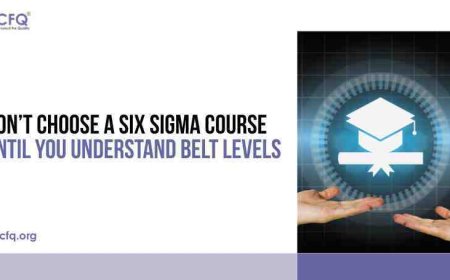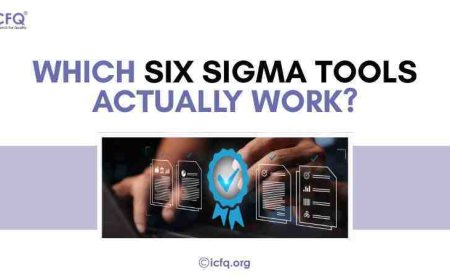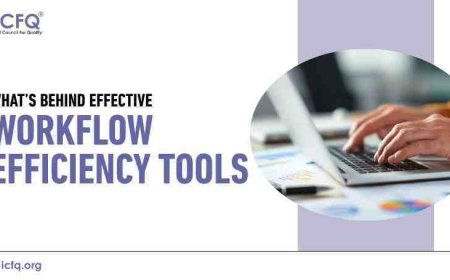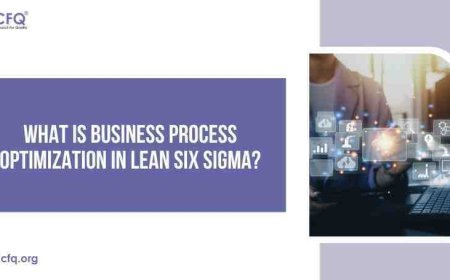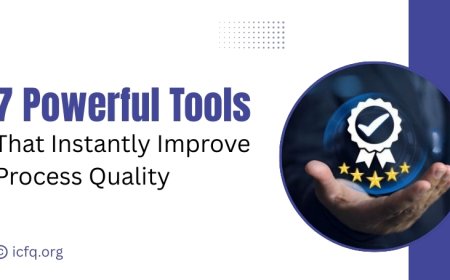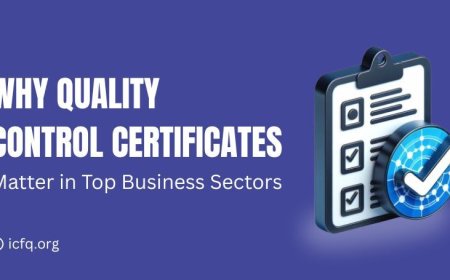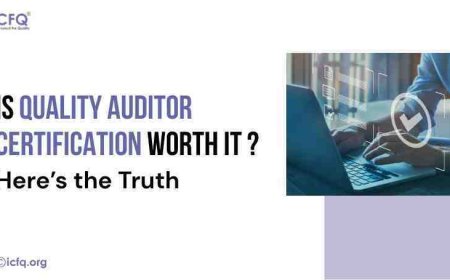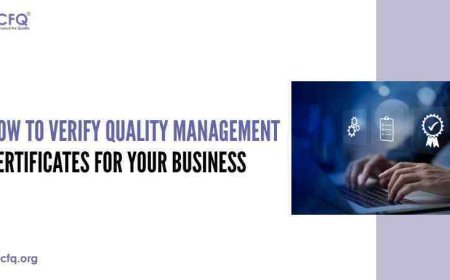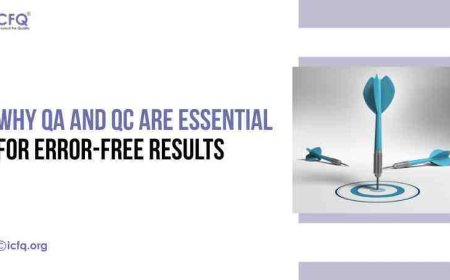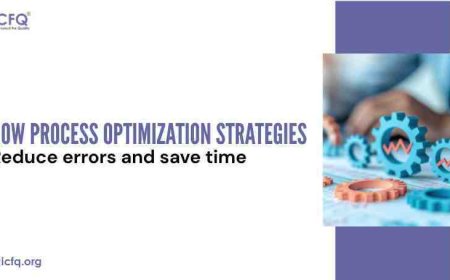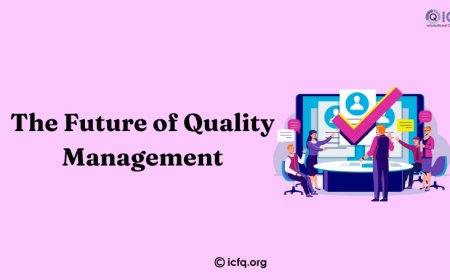How to Become a Certified Supplier Quality Engineer
Learn the steps, skills, and certifications needed to become a certified Supplier Quality Engineer and grow your career in quality and manufacturing.
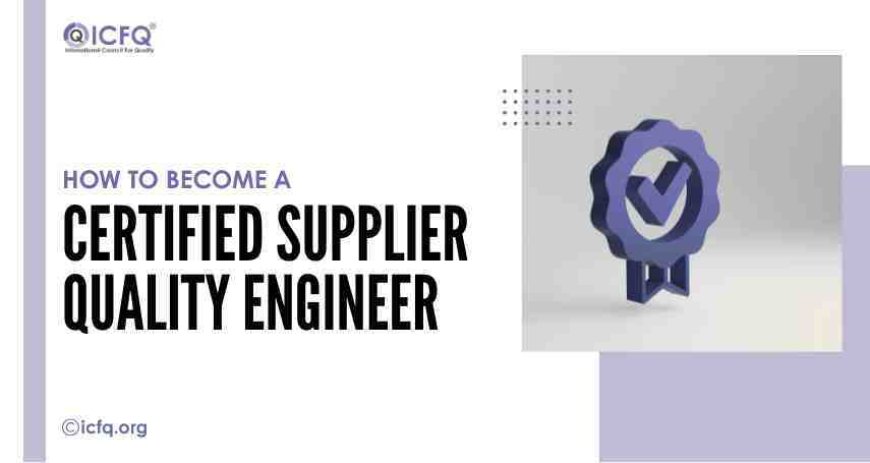
When I started my career in quality and manufacturing, I learned how important it is to work closely with suppliers to make sure products are good and meet standards. Becoming a Supplier Quality Engineer (SQE) changed how I handled quality work. I learned how to check supplier processes, stop mistakes, and make sure every product is reliable.
Getting SQE certification gave me more confidence, showed my skills to employers, and opened doors to better jobs. In this guide, I will share the steps, skills, and certifications you need to become a certified Supplier Quality Engineer, based on my own experience.
What is a Supplier Quality Engineer?
A Supplier Quality Engineer (SQE) makes sure that suppliers provide products that meet quality standards. SQEs work closely with suppliers, manufacturers, and quality teams to prevent problems, check processes, and improve production.
Their main tasks include:
-
Checking supplier quality systems
-
Performing audits and inspections
-
Tracking supplier performance
-
Investigating defects and fixing problems
-
Working with engineering and production teams
An SQE acts as a link between the company and its suppliers, making sure products are safe, reliable, and meet industry rules.
Why Become a Certified Supplier Quality Engineer?
Getting a Supplier Quality Engineer (SQE) certification shows that you are skilled and serious about your career. It also opens doors to better job opportunities.
Some of the main benefits are:
-
Professional Recognition: Certification proves you know industry standards and can manage supplier quality.
-
Higher Pay: Certified SQEs usually earn more than those without certification.
-
Better Job Opportunities: Companies prefer hiring certified professionals for quality, manufacturing, and supply chain roles.
-
Skill Proof: Certification confirms you understand quality tools, audits, and supplier management.
Skills Needed to Become a Supplier Quality Engineer
To succeed as a Supplier Quality Engineer (SQE), you need a mix of technical and soft skills. Here are the key ones:
-
Quality Knowledge: Understand quality standards, ISO rules, and tools like FMEA, SPC, and PPAP.
-
Problem-Solving: Be able to find the root cause of defects and fix issues quickly.
-
Audit Skills: Know how to check supplier processes and make sure they meet quality standards.
-
Communication: Work well with suppliers, engineers, and production teams to share information clearly.
-
Attention to Detail: Notice small errors or problems that could affect product quality.
These skills help an SQE ensure products are safe, reliable, and meet company and industry requirements.
Common Supplier Quality Engineer Certifications
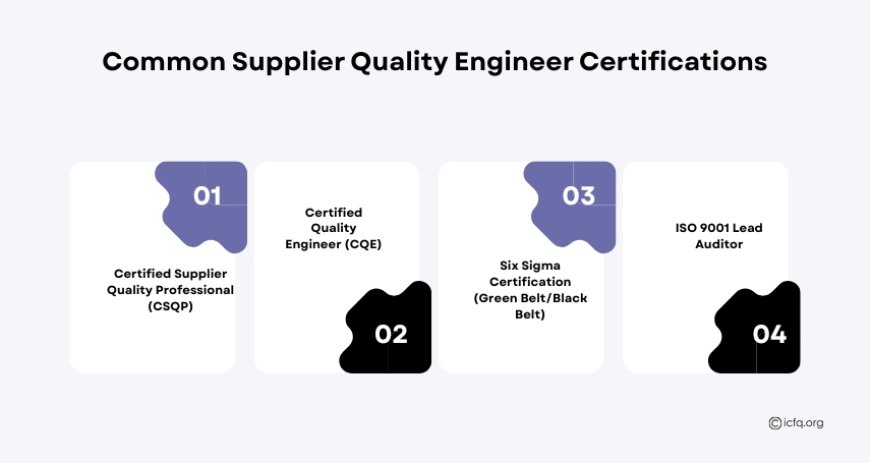 There are several recognized certifications that can enhance your career as an SQE:
There are several recognized certifications that can enhance your career as an SQE:
-
Certified Supplier Quality Professional (CSQP)
Offered by the American Society for Quality (ASQ), CSQP is designed for professionals managing supplier quality systems.
-
Certified Quality Engineer (CQE)
Also offered by ASQ, CQE certification covers quality engineering principles, quality systems, and continuous improvement methods.
-
Six Sigma Certification (Green Belt/Black Belt)
Six Sigma helps SQEs improve processes, reduce defects, and increase efficiency.
-
ISO 9001 Lead Auditor
Training in ISO 9001 auditing standards helps SQEs assess supplier quality management systems effectively.
Steps to Become a Certified Supplier Quality Engineer
Becoming a certified SQE involves a structured approach:
Step 1: Meet Educational Requirements
Most SQE roles require a bachelor’s degree in engineering, manufacturing, or a related field. Degrees in mechanical, industrial, or quality engineering are highly preferred.
Step 2: Gain Relevant Work Experience
Certification bodies usually require 2–5 years of professional experience in quality assurance, manufacturing, or supplier management. Hands-on experience with audits, inspections, and quality tools is essential.
Step 3: Choose the Right Certification
Select a certification that aligns with your career goals. For example:
-
CSQP for supplier-specific quality roles
-
CQE for broader quality engineering expertise
-
Six Sigma for process improvement focus
Step 4: Prepare for the Certification Exam
Preparation is key to passing the exam:
-
Study official guides and recommended textbooks
-
Attend training courses or workshops
-
Practice using quality tools like FMEA, SPC, and MSA
-
Review case studies to understand real-world scenarios
Step 5: Apply and Take the Exam
Submit your application to the certification body and schedule your exam. Exams usually include multiple-choice questions, practical scenarios, and problem-solving exercises.
Step 6: Maintain Your Certification
Most certifications require continuing education or recertification every few years. Attend workshops, webinars, and additional courses to stay updated on quality trends and best practices.
Career Opportunities After Certification
Becoming a certified Supplier Quality Engineer (SQE) opens many career paths in different industries, such as automotive, aerospace, electronics, and manufacturing. Some common roles include:
-
Supplier Quality Engineer – Monitor suppliers and ensure product quality.
-
Quality Assurance Manager – Oversee quality processes across the company.
-
Quality Systems Auditor – Check if suppliers and processes follow quality standards.
-
Manufacturing Engineer – Improve production processes to reduce defects.
-
Continuous Improvement Specialist – Find ways to make products and processes better.
With experience and additional certifications like Six Sigma or Lean, SQEs can move into senior management or director-level roles, taking on bigger responsibilities and higher salaries.
Becoming a certified Supplier Quality Engineer (SQE) is a good career choice for anyone interested in quality, manufacturing, and working with suppliers. With the right education, practical experience, and certification, you can show your skills and get better jobs and leadership roles.
By learning quality tools, understanding industry rules, and keeping your certification up to date, you can stay skilled and do well in manufacturing and supply chain work.

